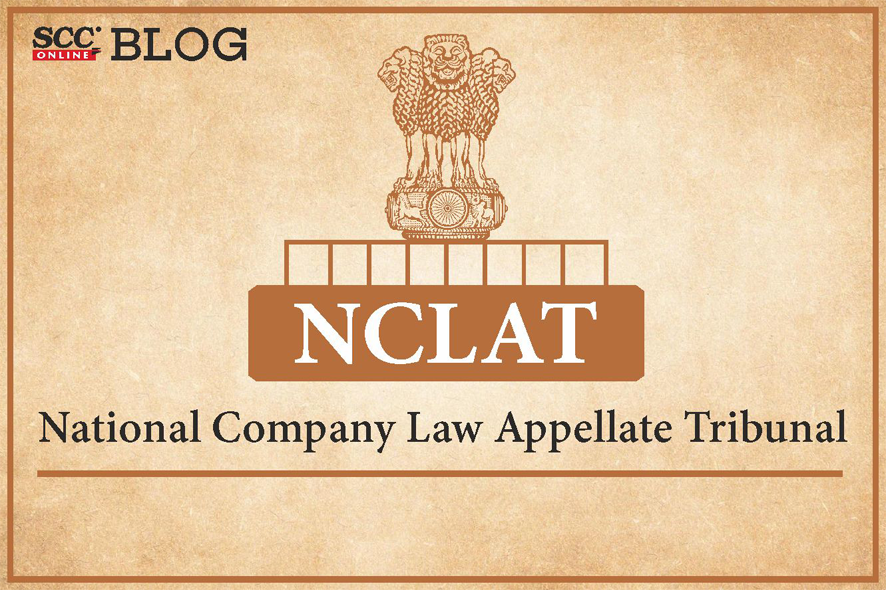National Company Law Appellate Tribunal, New Delhi: The Division bench of Ashok Bhushan*, J., and Barun Mitra (Technical Member) held that a Corporate Debtor entering into a transaction whether voluntary or due to pressure or threat has no relevance in concluding whether the transaction is preferential or not, the intent of Corporate Debtor is not relevant since S. 43 of the Insolvency and Bankruptcy Code, 2016 (IBC) envisages statutory/deeming fiction.
Factual Matrix
In the instant matter, CIRP against the Corporate Debtor had commenced vide order dated 27-08-2019 and respondent, Pooja Bahry was appointed as Resolution Professional of the Corporate Debtor. The Adjudicating Authority held that the transactions by the Corporate Debtor entered with appellants were preferential transactions under S. 43 of the IBC and directed them to refund the amount. The Adjudicating Authority also did not accept the prayers made in application under Ss. 45 and 66 by the Resolution Professional for declaring certain transaction undervalued and fraudulent. Aggrieved by the impugned order passed by the Adjudicating Authority, three appeals in total were filed by the appellants.
Appellant's Contentions
The appellants at the outset stated that the appellants in Company Appeal are not related party to the Corporate Debtor and the transactions held as preferential transactions by the Adjudicating Authority were related to loan given to the Corporate Debtor which were entered into ordinary course of business and such repayments are exempted within the meaning of S. 43. The appellants contended that the Resolution Professional had no authority to pursue the avoidance application as has been discussed in Venus Recruiters (P) Ltd. v. Union of India, 2020 SCC OnLine DL 1479, and Corporate Debtor was merely honouring payments to its secured creditors. The appellants referred to UNCITRAL Legislative Guide on Insolvency Law with regard to Avoidance Proceedings and Ordinary course of business. The appellants relied upon P.G. Vivekanandan v. R.P.S. Benefit Fund Ltd., 2002 SCC OnLine Mad 917, to further the argument that weight is to be given to the dominant motive of the Company in the transaction.
Respondent's Contentions
The respondents contended that as per the directions of CoC, in the Resolution Plan, it was specifically stipulated that any amount realized by the Corporate Debtor in future shall be distributed among the financial creditors in order of priority as per S. 53 of the IBC. The respondents further contended that the payments made in favour of the related parties and non-related parties had the effect of putting the appellants in a more beneficial position and hence pre-requisites of S. 43 of the IBC were fulfilled. The respondents relied upon Anuj Jain v. Axis Bank Ltd., (2020) 8 SCC 401, to further the argument that the transactions do not fall in ordinary course of business and are not covered in the exceptions under S. 43(3) of the IBC.
Moot Point
-
Whether weight is to be given to the dominant motive of the Company in a transaction while deciding the question of that transaction being preferential transaction as per S. 43 of the IBC?
-
Whether money arranged from relatives by a Corporate Debtor be held as preferential transaction?
NCLAT's Observation
NCLAT observed that there is no need to prove any fraudulent intent for a preferential transaction as per S. 43 of the IBC. NCLAT discussed Anuj Jain v. Axis Bank Ltd., (2020) 8 SCC 401, and held that even if the transaction was fact intended or even anticipated if the provisions of S. 43 IBC come into play the transaction so entered would be regarded as preferential transaction.
“The intent of the Corporate Debtor is not relevant since Section 43 envisages statutory fiction as has been noted above. Whether the Act is voluntary or not has no relevance while coming to the conclusion whether transaction is preferential or not. Learned Counsel for the Resolution Professional has rightly referred to Section 43, sub-section (3) proviso.”
NCLAT observed that preference by Corporate Debtor even in mortgage transaction for the benefit of related party falls in the ambit of preferential transaction. It was also explicitly mentioned that the object and purpose of S. 43 and the legislative scheme must be kept in consideration while naming a transaction to be of ordinary course of business because if labeled wrong, such transaction would result in frustrating the provision itself.
NCLAT observed that money arranged from relatives and other parties by a corporate debtor cannot be held to be part of an ordinary course of business or part of financial affairs.
“Undistinguished common flow of the business of the corporate debtor does not contemplate any such or particular situation where the corporate debtor's claim that its financial position became unstable due to market condition and had started arranging money from their relatives and other parties”
NCLAT's Verdict
While dismissing the appeals, NCLAT held that application filed by the Resolution Professional was rightly allowed by the Adjudicating Authority and it was rightly declared the transactions as preferential transactions in favour of the appellants. NCLAT upheld the direction to the appellants to refund the amount.
[GVR Consulting Services (P) Ltd. v. Pooja Bahry, 2023 SCC OnLine NCLAT 220, order dated 24-04-2023]
*Judgment by Justice Ashok Bhushan
Messiah of the sufferers: Bidding adieu to Justice Ashok Bhushan
Advocates who appeared in this case :
Mr. Abhijeet Sinha and Ms. Aditi Sharma, Counsel for the Appellants
Ms. Pooja Mahajan, Ms. Pooja Bahry (erstwhile RP), Ms. Mehak Nayak, Mr. Milan Singh Negi and Mr. Nikhil Jha, Counsel for the Respondents






